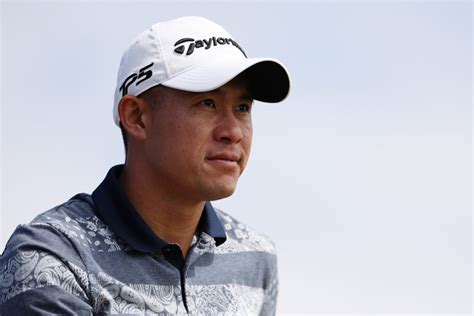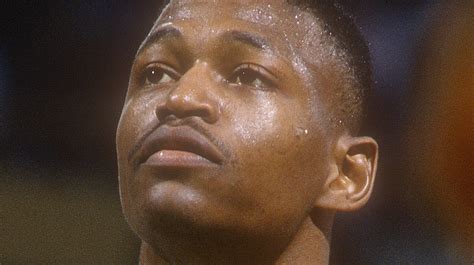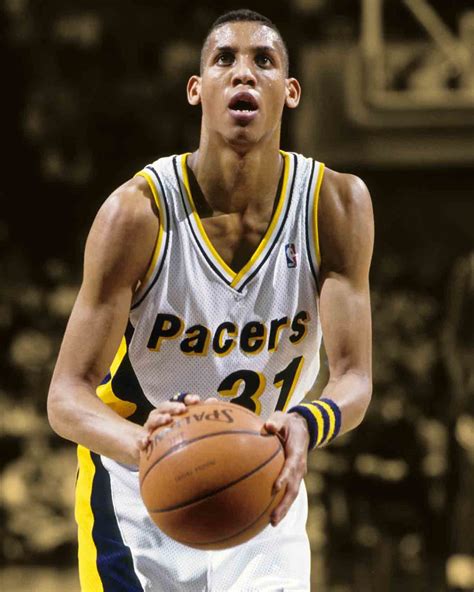
Collin Morikawa’s decision to revamp his team ahead of the 2024 season, notably parting ways with his longtime caddie J.J. Jakovac and swing coach Rick Sessinghaus, has ignited a firestorm of reactions among golf fans, with many expressing surprise and concern over the potential impact on the two-time major champion’s performance.
Two-time major winner Collin Morikawa is making significant changes to his inner circle, a move that’s stirring considerable debate within the golf community. Morikawa, who has been a consistent presence on leaderboards since turning professional in 2019, recently announced that he would be parting ways with his caddie, J.J. Jakovac, and his swing coach, Rick Sessinghaus. These changes, coming just before the start of the 2024 season, have triggered diverse reactions among fans and analysts, many of whom are questioning the timing and rationale behind the shifts.
Jakovac had been on Morikawa’s bag for the entirety of his professional career, a partnership that yielded five PGA Tour victories, including two major championships: the 2020 PGA Championship and the 2021 Open Championship. Sessinghaus, on the other hand, has been Morikawa’s swing coach since his childhood, playing a crucial role in developing the technically sound and consistent swing that has become Morikawa’s trademark.
“After a lot of thought, JJ and I have decided to part ways,” Morikawa stated on social media. “I’ll have to find a new caddie starting in 2024. JJ has been by my side through my whole career as a pro and I am forever grateful for all of his help.” The statement regarding Sessinghaus was similar in tone, expressing gratitude for their long-standing relationship but indicating a need for a change.
The reactions to these announcements have been varied. Some fans have expressed support for Morikawa, acknowledging his right to make changes in pursuit of improved performance. They argue that professional golf is a results-driven business and that sometimes a fresh perspective is necessary to unlock a player’s full potential. Others, however, have voiced concern, suggesting that disrupting a successful team dynamic could be detrimental to Morikawa’s game.
“Major changes for Collin Morikawa,” one fan wrote on X (formerly Twitter). “He has been with his caddie JJ Jakovac and swing coach Rick Sessinghaus since turning pro. I hope this doesn’t mess with his game.” Another fan commented, “Collin Morikawa is making a mistake. You don’t mess with a winning formula.”
The timing of these changes is particularly noteworthy. Morikawa had a solid but not spectacular 2023 season. While he recorded several top-10 finishes, including a runner-up at the Sentry Tournament of Champions and a third-place finish at the Masters, he did not secure a victory. He also experienced some uncharacteristic struggles with his iron play, which has traditionally been one of his greatest strengths. It is possible that Morikawa felt a change was needed to address these issues and elevate his game to the next level.
The decision to part ways with Jakovac is perhaps the most surprising, given the close bond they seemed to share on and off the course. Caddies play a vital role in a golfer’s success, providing course management advice, club selection assistance, and emotional support. Jakovac was known for his calm demeanor and his ability to keep Morikawa focused under pressure. Replacing him will not be easy, and it remains to be seen who Morikawa will choose to fill this crucial role.
Finding a new swing coach may also present a challenge. Sessinghaus has been intimately familiar with Morikawa’s swing mechanics for many years, and it will take time for a new coach to develop the same level of understanding. There is a risk that changes to his swing could lead to inconsistency or even injury.
Some experts have suggested that Morikawa may be seeking a coach with more experience working with top-ranked players. While Sessinghaus is undoubtedly a talented instructor, he has primarily worked with amateur and collegiate golfers. A coach with a proven track record on the PGA Tour could potentially bring a new level of expertise and insight to Morikawa’s game.
The changes Morikawa is making also reflect the intense pressure that professional golfers face to constantly improve. In a sport where the margins between success and failure are razor-thin, players are always looking for ways to gain an edge. Even a slight improvement in their game can translate into millions of dollars in prize money and endorsement deals.
Morikawa’s decision also highlights the evolving nature of player-coach relationships in modern golf. In the past, many golfers would stick with the same caddie and swing coach for their entire careers. However, it is becoming increasingly common for players to make changes in their support team as they seek to optimize their performance.
The golf world will be watching closely to see how these changes impact Morikawa’s performance in 2024. He is still considered one of the most talented young players in the game, and he has the potential to win many more major championships. However, his success will depend on his ability to adapt to these changes and build strong relationships with his new caddie and swing coach.
Morikawa’s agent has stated that the golfer is actively searching for replacements and is committed to ensuring a seamless transition, aiming to maintain his competitive edge on the PGA Tour. The agent emphasized that these decisions were not taken lightly and were the result of careful consideration aimed at optimizing Morikawa’s performance trajectory.
As Morikawa embarks on this new chapter in his career, he will be hoping to prove his doubters wrong and demonstrate that these changes were the right move. Only time will tell whether he can recapture his best form and continue his ascent to the top of the golf world.
The news has spread rapidly across various social media platforms and golf forums, with fans dissecting every possible angle. Some speculate about potential candidates to fill the vacant caddie and coaching positions, while others debate the merits of making such significant alterations to a previously successful formula. Regardless of their opinions, one thing is clear: all eyes will be on Collin Morikawa as he navigates this period of transition and prepares for the upcoming season.
Several golf analysts have weighed in on Morikawa’s decision, offering their perspectives on the potential implications. Some experts believe that the changes could be beneficial, providing Morikawa with a fresh perspective and renewed motivation. Others are more cautious, warning that disrupting a previously successful team dynamic could have unintended consequences.
“It’s always a gamble when a player makes changes to their team,” said renowned golf analyst Brandel Chamblee on Golf Channel. “Sometimes it works out, and sometimes it doesn’t. In Collin’s case, he’s a young player with a lot of talent, but he’s also shown a willingness to tinker with his game. Whether this will ultimately help or hurt him remains to be seen.”
The changes Morikawa is making are not entirely unprecedented in the world of professional golf. Many top players have made similar moves throughout their careers, sometimes with great success and sometimes with disappointing results. Tiger Woods, for example, famously parted ways with his longtime coach Butch Harmon in 2003 and later with Hank Haney in 2010. While Woods continued to win major championships after those changes, his career was also marked by periods of inconsistency and injury.
Ultimately, the success of Morikawa’s changes will depend on a number of factors, including his ability to find suitable replacements for Jakovac and Sessinghaus, his willingness to adapt to new coaching methods, and his mental fortitude in the face of adversity. The 2024 season will be a crucial test for Morikawa, as he seeks to prove that he can continue to compete at the highest level despite these significant changes to his team.
Adding to the complexity, sources close to Morikawa suggest that personal considerations might have played a role in the decision to part ways with his caddie and coach. While these details remain largely undisclosed, they underscore the multifaceted nature of professional athlete-team relationships and the various factors that can influence such decisions.
The financial implications of these changes are also noteworthy. Top caddies on the PGA Tour can earn a significant percentage of a player’s winnings, and experienced swing coaches command substantial fees for their services. By making these changes, Morikawa is essentially betting on himself, hoping that the new team dynamic will translate into improved performance and increased earnings.
Morikawa’s agent reiterated that the golfer is “fully committed to his pursuit of excellence” and that these changes are “a necessary step in his ongoing evolution as a player.” The agent also emphasized that Morikawa has the utmost respect and gratitude for Jakovac and Sessinghaus, acknowledging their invaluable contributions to his success.
However, the agent also hinted at some underlying issues that may have contributed to the decision to make changes. “In any high-performance environment, there are often disagreements and differences of opinion,” the agent said. “Sometimes, it becomes necessary to make changes in order to move forward and achieve one’s goals.”
The reactions from other players on the PGA Tour have been largely supportive, with many expressing understanding and empathy for Morikawa’s situation. Some players have even shared their own experiences with making similar changes to their teams.
“It’s never easy to make changes like that,” said Rory McIlroy. “But sometimes you have to do what you think is best for your career. I wish Collin all the best, and I’m sure he’ll bounce back stronger than ever.”
Adding another layer of intrigue, some observers have speculated that Morikawa may be seeking to align himself with a more data-driven approach to golf. In recent years, there has been a growing emphasis on analytics and statistical analysis in the sport, with many players relying on sophisticated data to inform their strategy and decision-making. It is possible that Morikawa is looking for a caddie and swing coach who are more adept at using data to optimize his performance.
The shift also comes at a time when many top players are increasingly focusing on fitness and nutrition. Morikawa has always been known for his dedication to physical conditioning, but he may be looking to take his training to the next level. A new coach or trainer could potentially help him to refine his fitness regimen and maximize his physical potential.
Regardless of the specific reasons behind these changes, it is clear that Morikawa is determined to take his game to the next level. He is a highly ambitious and driven player, and he is willing to make difficult decisions in order to achieve his goals. The 2024 season will be a fascinating test of his resolve, as he seeks to prove that he can continue to compete at the highest level despite the significant changes to his team.
The ripple effects of Morikawa’s decision are also being felt throughout the golf industry. Caddie agencies and coaching academies are likely fielding calls from players interested in filling the vacant positions. Equipment manufacturers are also watching closely, as any changes to Morikawa’s swing could potentially impact his equipment preferences.
The news has also generated significant buzz on social media, with fans using the hashtag #MorikawaChange to share their thoughts and opinions. The hashtag has become a hub for speculation, debate, and analysis, as golf fans from around the world weigh in on Morikawa’s decision.
One popular theory circulating on social media is that Morikawa may be looking to simplify his game. He has a reputation for being a meticulous and analytical player, but some observers believe that he may be overthinking things at times. A new caddie and swing coach could potentially help him to relax and trust his instincts more.
Another theory is that Morikawa may be seeking to improve his mental game. Golf is a sport that is heavily reliant on mental toughness, and even the most talented players can struggle with pressure and self-doubt. A new caddie or sports psychologist could potentially help Morikawa to develop a stronger mental game and perform better under pressure.
Ultimately, the success of Morikawa’s changes will depend on his ability to adapt and adjust. He is a highly intelligent and adaptable player, and he has shown a willingness to learn and grow throughout his career. If he can embrace these changes and build strong relationships with his new team members, he has the potential to achieve even greater success in the years to come.
Adding to the complexity of the situation, some reports suggest that there may have been friction between Jakovac and Sessinghaus, which could have contributed to Morikawa’s decision to make changes. While these reports remain unconfirmed, they highlight the challenges of managing a successful team dynamic in a high-pressure environment.
The departure of Jakovac is particularly noteworthy, given the close bond they seemed to share on and off the course. The two were often seen joking and laughing together, and they appeared to have a strong rapport. However, sources close to Morikawa suggest that there may have been some underlying tensions that were not apparent to the public.
The search for a new caddie is likely to be a lengthy and thorough process. Morikawa will want to find someone who not only has the technical skills and experience to help him on the course but also someone who he can trust and connect with on a personal level. The caddie-player relationship is a unique and intimate one, and it is essential that the two individuals are able to work together seamlessly.
The search for a new swing coach is also likely to be a challenging endeavor. Morikawa has a very specific and technically sound swing, and he will want to find a coach who understands his mechanics and can help him to fine-tune his technique. He will also want to find someone who is willing to work collaboratively and who respects his input.
As Morikawa embarks on this new chapter in his career, he will be relying heavily on his family and friends for support. He has a close-knit family who have always been there for him, and he will undoubtedly turn to them for guidance and encouragement during this time of transition.
The 2024 season will be a defining year for Morikawa. He has the potential to achieve great things, but he will need to overcome the challenges posed by these changes to his team. The golf world will be watching closely to see how he responds.
In recent interviews, Morikawa has expressed a sense of optimism and excitement about the future. He has stated that he is “looking forward to the challenge” and that he is “confident that these changes will ultimately make me a better player.” He has also emphasized his gratitude for the support he has received from his fans and sponsors.
The changes also reflect a broader trend in professional sports, where athletes are increasingly taking control of their careers and making strategic decisions to optimize their performance. Morikawa is clearly not afraid to challenge the status quo and to make bold moves in pursuit of his goals.
The saga surrounding Morikawa’s team changes is a reminder of the complex and ever-evolving nature of professional golf. It is a sport that is both highly individualistic and deeply collaborative, and success depends on a delicate balance of talent, hard work, and strong relationships. As Morikawa navigates this period of transition, he will be relying on all of these qualities to help him achieve his goals.
Frequently Asked Questions (FAQ)
1. Why did Collin Morikawa decide to part ways with his caddie, J.J. Jakovac, and swing coach, Rick Sessinghaus?
Collin Morikawa stated that the decision to part ways with Jakovac and Sessinghaus was made after a lot of thought. While he expressed gratitude for their contributions, he indicated a need for a change to potentially improve his performance and elevate his game. The specific reasons remain undisclosed, but speculation includes seeking a fresh perspective, addressing issues with his iron play, and potentially aligning with a more data-driven approach to golf. Sources close to Morikawa suggest personal considerations may have also played a role.
2. How long had Collin Morikawa worked with J.J. Jakovac and Rick Sessinghaus?
J.J. Jakovac had been Morikawa’s caddie for the entirety of his professional career, starting in 2019. Rick Sessinghaus had been Morikawa’s swing coach since his childhood, playing a crucial role in developing his swing mechanics.
3. What impact did J.J. Jakovac and Rick Sessinghaus have on Collin Morikawa’s career?
J.J. Jakovac was instrumental in Morikawa’s success, providing course management advice, club selection assistance, and emotional support, contributing to five PGA Tour victories, including two major championships: the 2020 PGA Championship and the 2021 Open Championship. Rick Sessinghaus played a pivotal role in developing Morikawa’s technically sound and consistent swing, a key element of his success.
4. What are the potential risks and benefits of Collin Morikawa changing his caddie and swing coach?
Potential Risks:
- Disrupting a successful team dynamic could negatively impact Morikawa’s performance.
- A new swing coach may take time to understand Morikawa’s swing mechanics, potentially leading to inconsistency or injury.
- Finding a caddie who can provide the same level of trust and support as Jakovac may be challenging.
Potential Benefits:
- A fresh perspective from a new caddie and swing coach could help Morikawa identify areas for improvement.
- A new coach with more experience working with top-ranked players could bring a new level of expertise.
- Changes could renew Morikawa’s motivation and help him to take his game to the next level.
5. How are golf fans and analysts reacting to Collin Morikawa’s decision?
The reactions to Morikawa’s decision have been varied. Some fans support the changes, believing a fresh perspective is necessary. Others express concern, suggesting disrupting a successful team dynamic could be detrimental. Analysts are also divided, with some believing the changes could be beneficial, while others warn of potential unintended consequences. Many are watching closely to see how these changes impact Morikawa’s performance in 2024.
6. What is Collin Morikawa’s agent saying about these changes?
Morikawa’s agent has stated that the golfer is actively searching for replacements and is committed to ensuring a seamless transition, aiming to maintain his competitive edge on the PGA Tour. The agent emphasized that these decisions were not taken lightly and were the result of careful consideration aimed at optimizing Morikawa’s performance trajectory. The agent also hinted at some underlying issues that may have contributed to the decision to make changes, stating, “In any high-performance environment, there are often disagreements and differences of opinion. Sometimes, it becomes necessary to make changes in order to move forward and achieve one’s goals.”
7. What are some of the potential reasons behind Morikawa’s decision to make these changes, according to speculation?
Speculation includes:
- Seeking a fresh perspective to address performance plateaus.
- Addressing specific issues with his iron play, which has traditionally been a strength.
- Aligning with a more data-driven approach to golf, emphasizing analytics and statistical analysis.
- Potential friction between Jakovac and Sessinghaus, impacting team dynamics.
- Personal considerations that remain largely undisclosed.
8. Has Collin Morikawa addressed the changes himself?
Yes, Collin Morikawa made statements on social media, expressing gratitude to J.J. Jakovac and Rick Sessinghaus for their contributions throughout his career. While acknowledging the difficulty of the decision, he emphasized the need for change to move forward. He has also expressed optimism about the future and confidence that the changes will ultimately make him a better player in recent interviews.
9. How do these changes reflect broader trends in professional sports?
The changes reflect a broader trend in professional sports, where athletes are increasingly taking control of their careers and making strategic decisions to optimize their performance. Morikawa’s decision aligns with the modern approach of constantly seeking marginal gains through adjustments to coaching, training, and team dynamics.
10. What is the golf world watching for as Collin Morikawa enters the 2024 season?
The golf world will be closely watching how Morikawa adapts to his new team dynamic and how the changes impact his performance on the course. Specifically, observers will be looking for:
- The selection of his new caddie and swing coach.
- His ability to maintain consistency in his swing and iron play.
- His overall performance in tournaments, including major championships.
- His mental fortitude and ability to handle pressure during competition.
11. What challenges does Collin Morikawa face in finding suitable replacements for his former caddie and coach?
Finding suitable replacements presents several challenges:
- Identifying individuals with the necessary technical expertise and experience.
- Ensuring a strong personal connection and trust, essential for a successful caddie-player relationship.
- Finding a swing coach who understands Morikawa’s unique swing mechanics and can fine-tune his technique.
- Navigating the competitive landscape of caddie agencies and coaching academies to attract top talent.
12. How might Collin Morikawa’s family and friends play a role during this transition?
Morikawa will likely rely heavily on his family and friends for support and encouragement during this transition. As a close-knit family, they have always been there for him and will likely provide guidance and emotional support as he navigates the changes and adapts to his new team.
13. What are the potential financial implications of Morikawa’s decision to change his team?
Top caddies on the PGA Tour can earn a significant percentage of a player’s winnings, and experienced swing coaches command substantial fees for their services. By making these changes, Morikawa is essentially betting on himself, hoping that the new team dynamic will translate into improved performance and increased earnings. The financial implications include the cost of hiring new personnel and the potential impact on his prize money and endorsement deals if his performance is affected.
14. How has the news of Morikawa’s changes spread on social media?
The news has generated significant buzz on social media, with fans using the hashtag #MorikawaChange to share their thoughts and opinions. The hashtag has become a hub for speculation, debate, and analysis, as golf fans from around the world weigh in on Morikawa’s decision. Theories range from simplifying his game to improving his mental toughness.
15. Could a data-driven approach be a factor in Morikawa’s team changes?
Some observers have speculated that Morikawa may be seeking to align himself with a more data-driven approach to golf. In recent years, there has been a growing emphasis on analytics and statistical analysis in the sport, with many players relying on sophisticated data to inform their strategy and decision-making. It is possible that Morikawa is looking for a caddie and swing coach who are more adept at using data to optimize his performance. This suggests a desire to enhance his game through advanced metrics and strategic insights.
16. What is the perspective of other players on the PGA Tour regarding Morikawa’s decision?
Reactions from other players on the PGA Tour have been largely supportive, with many expressing understanding and empathy for Morikawa’s situation. Some players have even shared their own experiences with making similar changes to their teams. Rory McIlroy stated, “It’s never easy to make changes like that, but sometimes you have to do what you think is best for your career. I wish Collin all the best, and I’m sure he’ll bounce back stronger than ever.”
17. What were Collin Morikawa’s accomplishments with J.J. Jakovac?
With J.J. Jakovac as his caddie, Collin Morikawa achieved significant success, including:
- Five PGA Tour victories
- 2020 PGA Championship win
- 2021 Open Championship win
These accomplishments highlight the strong partnership and effective collaboration between Morikawa and Jakovac.
18. Are there any unconfirmed reports surrounding the reasons for these changes?
Some reports suggest there may have been friction between Jakovac and Sessinghaus, which could have contributed to Morikawa’s decision to make changes. While these reports remain unconfirmed, they highlight the challenges of managing a successful team dynamic in a high-pressure environment.
19. What are the potential benefits of Morikawa simplifying his game, as some speculate?
One popular theory circulating on social media is that Morikawa may be looking to simplify his game. He has a reputation for being a meticulous and analytical player, but some observers believe that he may be overthinking things at times. A new caddie and swing coach could potentially help him to relax and trust his instincts more, leading to more fluid and natural performance on the course.
20. How could a new caddie or sports psychologist help Morikawa improve his mental game?
Golf is a sport that is heavily reliant on mental toughness, and even the most talented players can struggle with pressure and self-doubt. A new caddie or sports psychologist could potentially help Morikawa to develop a stronger mental game and perform better under pressure by providing strategies for managing stress, building confidence, and maintaining focus during critical moments.









